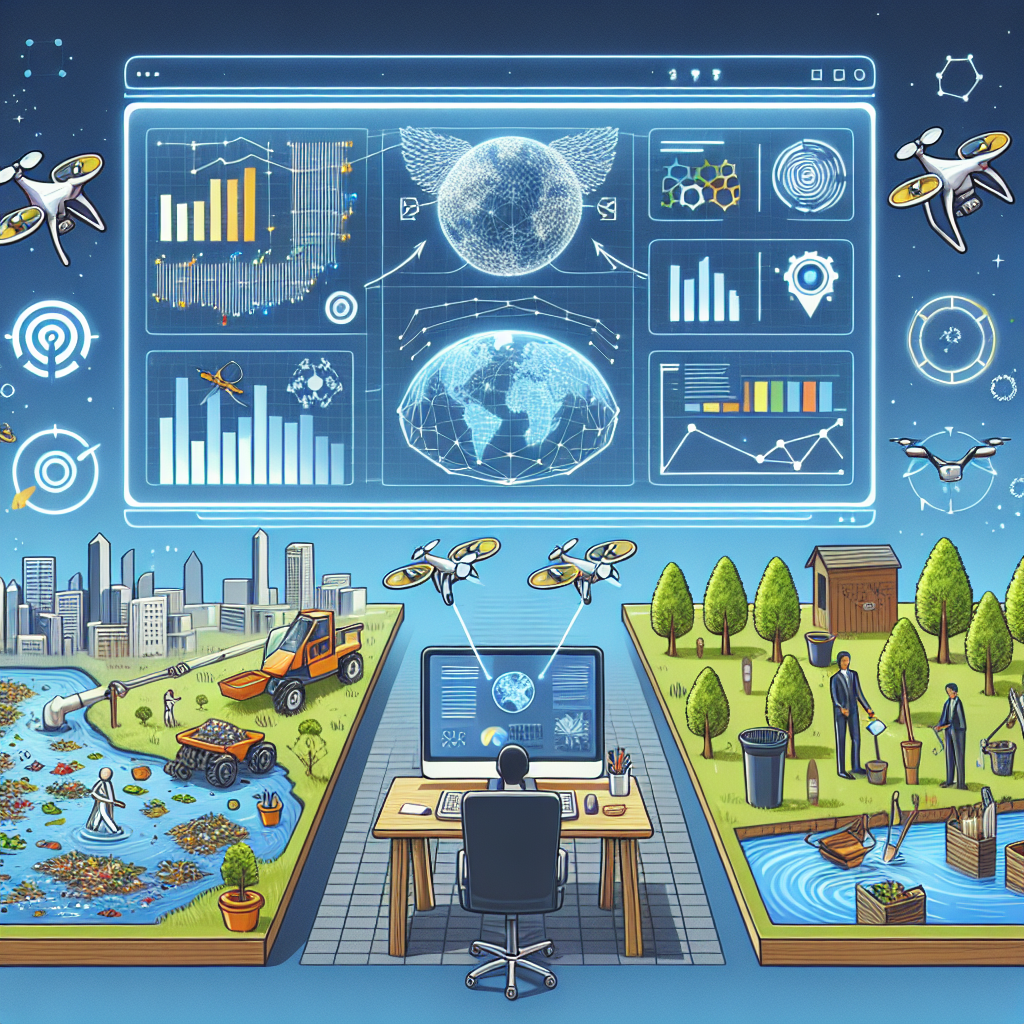AGI for Good: How Advanced Technology is Being Used for Social and Environmental Impact
In recent years, advanced technology has been increasingly used to address some of the most pressing social and environmental issues facing our world. Artificial General Intelligence (AGI) – the ability of a machine to perform any intellectual task that a human can do – is one such technology that has the potential to revolutionize how we tackle these challenges. From climate change and poverty to healthcare and education, AGI has the capacity to significantly improve outcomes and create positive change on a global scale.
AGI for Good is a growing movement that aims to harness the power of advanced technology to address social and environmental issues. By leveraging the capabilities of AGI, researchers, organizations, and governments are developing innovative solutions to complex problems that have long plagued society. From predictive modeling and data analysis to automation and robotics, AGI is being used in a variety of ways to drive positive impact and create a more sustainable future for all.
One of the key areas where AGI is making a significant impact is in the fight against climate change. By using advanced algorithms and machine learning techniques, researchers are able to analyze vast amounts of data to better understand the complexities of climate systems and predict future trends. This information can then be used to develop more effective strategies for reducing greenhouse gas emissions, mitigating the effects of climate change, and transitioning to a more sustainable energy system.
AGI is also being used to address issues of poverty and inequality around the world. By analyzing data on income distribution, access to education, healthcare, and other social indicators, researchers are able to identify areas where resources are most needed and develop targeted interventions to improve outcomes for vulnerable populations. From microfinance and mobile banking to personalized healthcare and education platforms, AGI is helping to bridge the gap between those who have access to resources and those who do not.
In the healthcare sector, AGI is being used to improve patient outcomes and reduce healthcare costs. By analyzing patient data, medical records, and genetic information, researchers are able to develop personalized treatment plans and predict disease outcomes more accurately. This not only improves the quality of care for individual patients but also helps to optimize healthcare delivery systems and reduce unnecessary medical expenses.
In the field of education, AGI is revolutionizing how students learn and teachers teach. By developing personalized learning platforms that adapt to the individual needs and learning styles of students, researchers are able to improve educational outcomes and increase student engagement. This technology also has the potential to provide access to education for underserved populations and bridge the digital divide that exists in many parts of the world.
Despite the many benefits of AGI for Good, there are also concerns about its potential negative impacts. One of the main concerns is the ethical implications of using AGI to make decisions that affect human lives. As machines become more autonomous and capable of making complex decisions, there is a risk that they may make biased or discriminatory choices that could harm vulnerable populations.
Another concern is the potential for AGI to replace human workers and exacerbate unemployment and income inequality. As machines become more capable of performing tasks that were once done by humans, there is a risk that many jobs will be automated, leading to widespread job loss and economic disruption. This could further widen the gap between the wealthy and the poor and create social instability.
To address these concerns, researchers and policymakers are working to develop ethical guidelines and regulations for the use of AGI. By establishing clear standards for the development and deployment of advanced technologies, we can ensure that AGI is used in a way that benefits society as a whole and minimizes potential harms.
In conclusion, AGI for Good has the potential to revolutionize how we address social and environmental issues and create a more sustainable future for all. By leveraging the power of advanced technology, researchers, organizations, and governments can develop innovative solutions to complex problems that have long plagued society. From climate change and poverty to healthcare and education, AGI is being used in a variety of ways to drive positive impact and create a more equitable and sustainable world for future generations.
FAQs:
1. What is AGI?
AGI, or Artificial General Intelligence, refers to the ability of a machine to perform any intellectual task that a human can do. Unlike Artificial Narrow Intelligence (ANI), which is designed to perform specific tasks, AGI has the capacity to learn and adapt to new situations independently.
2. How is AGI being used for social and environmental impact?
AGI is being used in a variety of ways to address social and environmental issues, including climate change, poverty, healthcare, and education. By leveraging advanced algorithms and machine learning techniques, researchers are able to analyze data, predict trends, and develop innovative solutions to complex problems.
3. What are some examples of AGI for Good?
Some examples of AGI for Good include predictive modeling for climate change, personalized healthcare platforms, and personalized learning systems for education. These technologies have the potential to significantly improve outcomes and create positive change on a global scale.
4. What are some concerns about the use of AGI for Good?
Some concerns about the use of AGI for Good include ethical implications, job displacement, and income inequality. As machines become more autonomous and capable of making complex decisions, there is a risk that they may make biased or discriminatory choices that could harm vulnerable populations.
5. How can we address these concerns?
To address these concerns, researchers and policymakers are working to develop ethical guidelines and regulations for the use of AGI. By establishing clear standards for the development and deployment of advanced technologies, we can ensure that AGI is used in a way that benefits society as a whole and minimizes potential harms.

